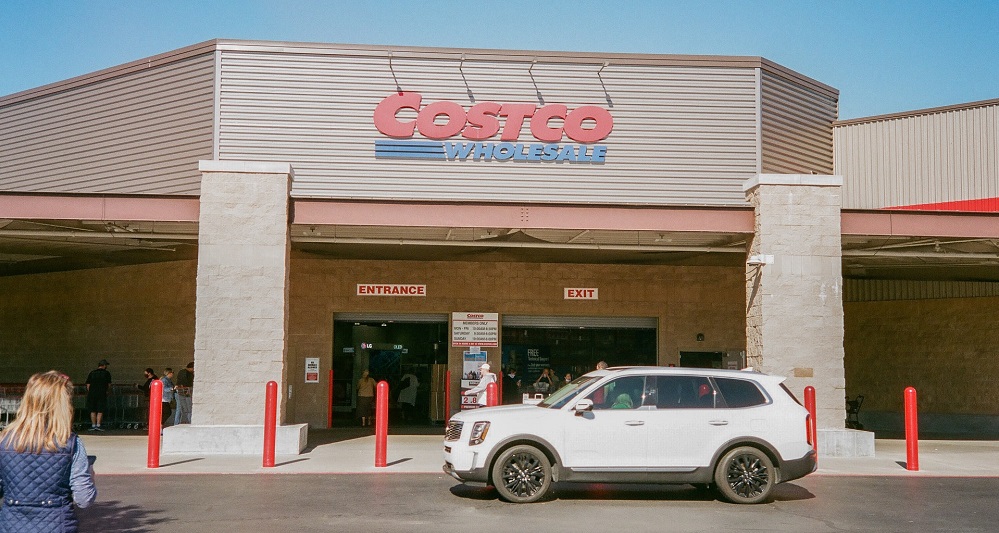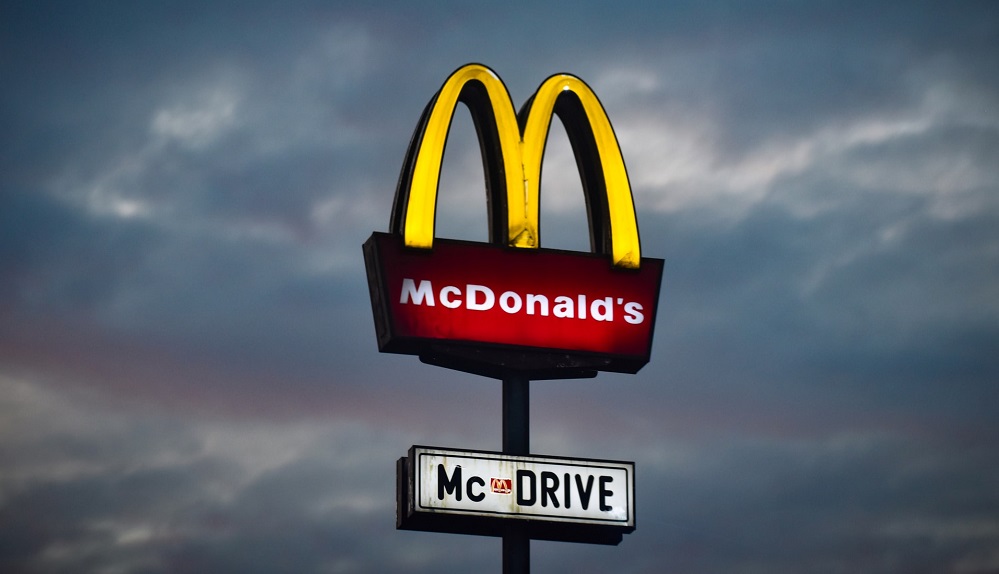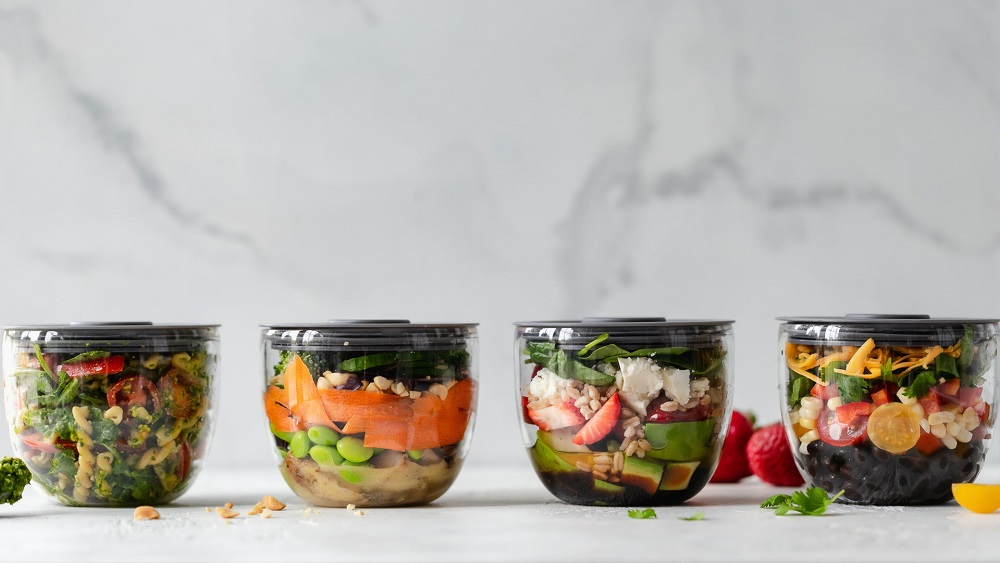While some video streaming platforms have been in the news recently for implementing ad-supported tiers or experiencing declining subscriber counts, an analysis based on Bloomberg Second Measure’s alternative dataset shows that as of March 2022, major music streaming subscription services like Spotify (NYSE: SPOT) and Amazon Music continued seeing subscriber growth in the U.S. for their paid subscription plans. Between these two music streaming companies, Spotify also had the higher customer retention rate.
Wholesale clubs experienced a sales boost early in the pandemic, as consumers rushed to stockpile pantry essentials and household goods. But how have wholesale clubs fared two years after the panic-buying rush? We looked at a few of the major wholesale club competitors—Costco Wholesale (NASDAQ: COST), BJ’s Wholesale (NYSE: BJ), and Walmart-owned Sam’s Club—to see how consumer spending has changed at these retailers. In addition to some wholesale clubs continuing to see strong growth in sales and average spend per customer throughout the pandemic, we also found that fuel sales through wholesale clubs skyrocketed in March 2022.
After a record-breaking year for IPOs in 2021, so far 2022 has been off to a slower start. Instacart is one of the most highly anticipated IPOs for investors this year, but in March, the grocery delivery startup cut its valuation by almost 40 percent, citing market conditions. Alternative data from Bloomberg Second Measure shows that while Instacart sales are still higher compared to pre-pandemic levels, its year-over-year sales growth and average sales per customer are declining. However, Instacart is continuing to see sales growth in some metro areas like Dallas, Philadelphia, and New York.
From pizza companies to burger chain upstarts such as Shake Shack, quick-service restaurants have seen their sales grow during the pandemic. Bloomberg Second Measure transaction data shows that this has also been the case with major fast food chains such as McDonald’s (NYSE: MCD) and Wendy’s (NASDAQ: WEN). Additionally, McDonald’s and Wendy’s, as well as Burger King, owned by Restaurant Brands International (NYSE: QSR), are seeing increased average transaction values.
When many Americans sheltered in their homes early in the coronavirus pandemic, meal delivery sales reached new heights. Our data reveals that in March 2022, sales for meal delivery services grew 6 percent year-over-year, collectively. The ongoing pandemic may also be driving more Americans to make their first meal delivery purchase. In March 2022, 51 percent of U.S. consumers had ever ordered from one of the meal delivery services in our analysis, up from 47 percent a year ago.
When U.S. cities and states faced shelter-in-place orders to limit the spread of the coronavirus, Americans’ reduced mobility resulted in plummeting sales at rideshare companies. With the exception of year-end dips in 2020 and 2021, sales have been gradually recovering since April 2020. Bloomberg Second Measure transaction data shows that Uber sales were up 89 percent year-over-year and Lyft sales were up 56 percent year-over-year in March 2022.
The streaming market has grown increasingly saturated during the pandemic, as TV networks like NBCUniversal and Discovery launched their own streaming platforms to compete with more established streaming services like Netflix (NASDAQ: NFLX) and Hulu. At the same time, several streaming services—especially those launched by TV networks—have been experimenting with lower-priced plans that are supported by ad revenue. Bloomberg Second Measure’s transaction data reveals that even as new competitors have entered the streaming wars, Netflix and the Disney+ bundle had the highest overall average customer retention rates in 2021.
When many Americans sheltered in their homes early in the coronavirus pandemic, meal delivery sales reached new heights. Our data reveals that in February 2022, sales for meal delivery services grew 10 percent year-over-year, collectively. The ongoing pandemic may also be driving more Americans to make their first meal delivery purchase. In February 2022, 51 percent of U.S. consumers had ever ordered from one of the meal delivery services in our analysis, up from 46 percent a year ago.
When U.S. cities and states faced shelter-in-place orders to limit the spread of the coronavirus, Americans’ reduced mobility resulted in plummeting sales at rideshare companies. With the exception of year-end dips in 2020 and 2021, sales have been gradually recovering since April 2020. Bloomberg Second Measure transaction data shows that Uber sales were up 104 percent year-over-year and Lyft sales were up 84 percent year-over-year in February 2022.
The pizza industry has been busy in the first quarter of 2022. In recent weeks, Little Caesars raised the price of its Hot-N-Ready pizza for the first time ever, Domino’s CEO announced his upcoming retirement, and Papa John’s CEO described 2021 as the biggest year in the company’s history. Consumer spending data reveals that Domino’s (NYSE: DPZ) is still the big cheese when it comes to national pizza chain market share, but Papa John’s (NASDAQ: PZZA) has experienced the most sales growth among major pizza companies since 2019.
As many Americans are returning to the office, pet owners are faced with the question of what to do with their pets while at work. That’s potentially good news for pet care companies, which struggled early in the pandemic as more people were staying home. In fact, the dog-walking platform Wag announced in February 2022 that it is planning its public debut via a SPAC deal. Its main rival, Rover (NASDAQ: ROVR), went public in August 2021, also through a SPAC merger. But pandemic recovery has differed for these two canine care companies.
According to its most recent earnings call, profitability remains a long-term goal for Blue Apron (NYSE: APRN). The meal kit pioneer has faced increased competition from other meal kit companies in recent years. Additionally, the industry has seen challenges related to seasonal demand and high operational and marketing costs. But how does Blue Apron measure up against other meal kit competitors? We looked at a few of the major meal kit companies—including Blue Apron, HelloFresh, Home Chef, Marley Spoon, and Sunbasket—to see how market share, customer retention, and quarterly transactions per customer compare within the industry as of the end of 2021.
When many Americans sheltered in their homes early in the coronavirus pandemic, meal delivery sales reached new heights. Our data reveals that in January 2022, sales for meal delivery services grew 7 percent year-over-year, collectively. The ongoing pandemic may also be driving more Americans to make their first meal delivery purchase. In January 2022, 51 percent of U.S. consumers had ever ordered from one of the meal delivery services in our analysis, up from 46 percent a year ago.
When U.S. cities and states faced shelter-in-place orders to limit the spread of the coronavirus, Americans’ reduced mobility resulted in plummeting sales at rideshare companies. With the exception of year-end dips in 2020 and 2021, sales have been gradually recovering since April 2020. Our consumer spending data shows that Uber sales were up 84 percent year-over-year and Lyft sales were up 62 percent year-over-year in January 2022.
The COVID-19 pandemic brought disruption to the flower industry—from plummeting demand, forcing nurseries globally to destroy millions of flowers early in the pandemic, to the supply chain issues resulting in the global flower shortage more recently. Despite these issues, transaction data shows that sales among DTC flower upstarts jumped during the pandemic, particularly during holidays such as Mother’s Day and Valentine’s Day.
After sweating out the early months of COVID-19, several national gym chains are finally experiencing a healthy increase in membership levels. Our competitive analysis of gym companies illustrates that U.S. customer counts steadily increased throughout 2021, and memberships at gym chains such as Crunch Fitness, Planet Fitness, and Anytime Fitness almost reached or exceeded pre-pandemic levels. Consumer transaction data further shows that Planet Fitness (NYSE: PLNT) continues to experience a significant spike in new customers every January, corresponding with the popular New Year’s resolutions to get fit or live a healthier lifestyle.
When hair salons temporarily closed at the beginning of the pandemic, many consumers turned to DIY haircuts—with varying degrees of success. Hair salons gradually reopened as COVID-19 cases slowed and state and local authorities lifted their shelter-in-place orders, but sales at Regis Corporation (NYSE: RGS)—the parent company behind salon brands such as Supercuts, Cost Cutters, and SmartStyle—remain below pre-pandemic levels. Our analysis of consumer transaction data shows that sales recovery for Regis Corporation has varied by state, especially early in the pandemic.
In early January 2022, Mattress Firm filed for an IPO. The mattress company was taken private in late summer 2016 after about five years of trading on the NASDAQ. Consumer spending data shows that Mattress Firm’s sales have grown over the past two years, as average transaction values at the retailer have increased compared to before the pandemic. Mattress Firm has experienced increasing sales since early in the pandemic. Between Q2 and Q3 of 2020, sales grew 49 percent and have remained elevated through the end of 2021. Notably, Mattress Firm temporarily closed about 50 percent of its stores in March 2020, with most reopening by late May 2020.
Department stores showed signs of sales recovery during the recent holiday season. Consumer transaction data reveals that 2021 holiday sales at several major U.S. department store parent companies approached pre-pandemic levels, and a few companies such as Dillard’s (NYSE: DDS) and Hudson’s Bay Company even exceeded holiday sales before the pandemic. At the same time, U.S. consumers who shopped at department store companies spent more on average in November and December 2021 than they did during the same months in 2019.
When many Americans sheltered in their homes early in the coronavirus pandemic, meal delivery sales reached new heights. Our data reveals that in December 2021, sales for meal delivery services grew 13 percent year-over-year, collectively. The ongoing pandemic may also be driving more Americans to make their first meal delivery purchase. In December 2021, 50 percent of U.S. consumers had ever ordered from one of the meal delivery services in our analysis, up from 45 percent a year ago.






















